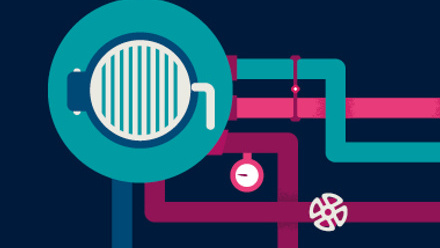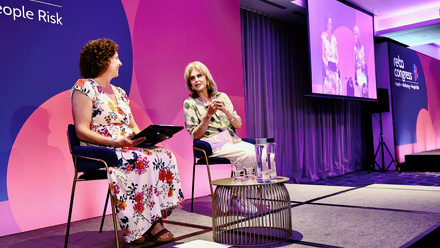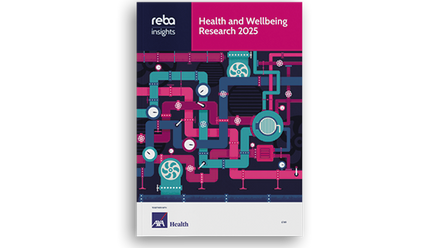“My colon exploded on Xmas Day”: lessons learnt from a personal wellbeing story

Having recently suffered a serious health complication of my own, I now have first-hand experience of using some of the benefits we all hope we will never need. I can confidently say that they genuinely help. Without some of the additional support available to me through my employer, my return to work could have taken much longer and I might not be in the very positive place that I am now.
“But I’ve never felt better…”
After hitting 50, getting fit and taking up rowing was a big deal for me. I was keen to make some significant changes to my lifestyle for the good of my ongoing health. I set up a rowing club for parents of kids who row at our local state school and we recently joined a league of similarly inexperienced rowers in the Thames Valley. We even won an event in November!
So it was hugely irritating when my colon exploded on Christmas Day. Thankfully, I was already on a surgical ward, having aggressive intravenous antibiotics plumbed into me, to fight a severe attack of diverticulitis - no, I had never heard of it either, nor had I ever suffered from it before.
So, when my condition deteriorated, from ‘dangerously swollen’ to ‘full on explosion’ (with the added onset of peritonitis), it was very handy I was in a hospital. The call to the family was tricky (and, I’m told, totally ruined their Christmas pudding and the planned Cranium marathon due to follow).
Key numbers:
- 6pm – went into surgery
- 2 epidural spinal taps (the first one failed – yay!)
- 10-inch lateral abdominal incision
- 5 hours of surgery (insides plopped on the table, just like you see on the telly)
- 12 litres of saline fluid used to flush the organs clean
- 6 inches of colon removed
- 1 temporary colostomy bag fitted (I have always been proud of my ability to get sh*t done, now it’s a constant feature!)
When I woke up, the surgeon summarised these numbers and pointed at the colostomy bag:
“You may not like this, but it has saved your life and they should be able to reverse it and reconnect your colon!”
Calling on my wellbeing benefits
As mentioned above, the most annoying part of the whole escapade was that this traumatic event happened at a time in my life when I had never been so fit and healthy. So I found myself questioning whether there had been any point in improving my wellbeing. Absolutely! Here are some more numbers to paint the picture of the aftermath:
- 6-8 weeks of wound recovery
- 6-12 months for the full effect of the anaesthesia to flush out of my system
- 6 months before the full colon reversal
- 1 more major operation in June
- 3-4 weeks more off work post op
What was potentially at risk as a result of all of this?
Financial: If I’m not well enough to work, how will that impact my ability to earn?
Physical: Will I ever be the same physically? What might the long-term health implications be?
Emotional: Am I resilient enough to bounce back? Do I have the necessary support system in place to help me?
Given my line of work, I spend a lot of my time helping employers develop wellbeing strategies and programmes. In a case of ‘physician, heal thyself’, I was fortunate to have all bases covered (and didn’t fall into the trap of ‘window cleaners having the dirtiest windows in the street’).
I’m delighted to report that the NHS were truly excellent throughout the ordeal and fully lived up to their reputation of being great in an emergency. My private medical insurance (PMI) will pick up the ongoing care and next major operation - and even paid me a fixed amount for each of my nights in hospital.
The flexibility provided through PMI will also help speed my recovery and enable me to better schedule treatment around work commitments. The telephone support I received through our employee assistance programme was fantastic. Having experienced a life-threatening incident, I was in shock, and very emotionally up and down for a few weeks. My team covered my workload while I was off and my clients have been hugely supportive and understanding.
What next?
Stay fit and healthy, as it aids recovery and will make the next operation easier. Get back to normal, get back to work and get back in a boat. Tick – all done! Spare a thought for my fellow colostomy bag wearers though. My short time as one has opened my eyes. There are many thousands who will be wearers for life - I salute you all!
James Biggs is consulting and wellbeing director at Lorica.
This article was provided by Lorica.
Supplied by REBA Associate Member, Lorica Workplace
Lorica has one simple aim: to help people develop a healthy relationship with money.






